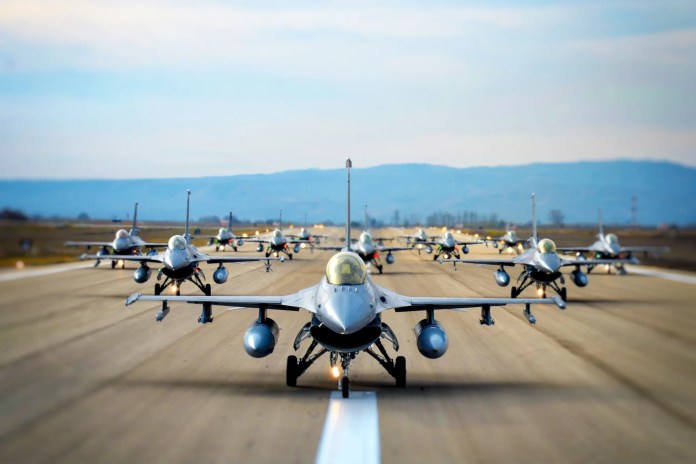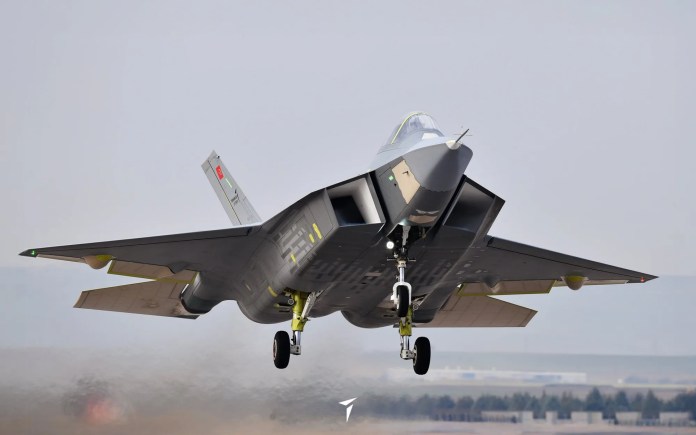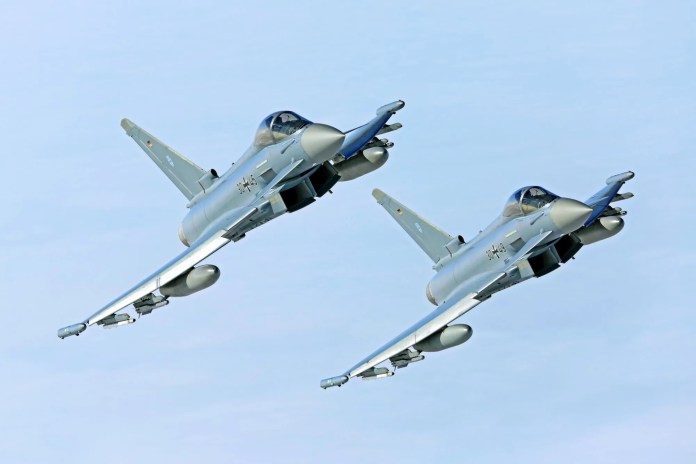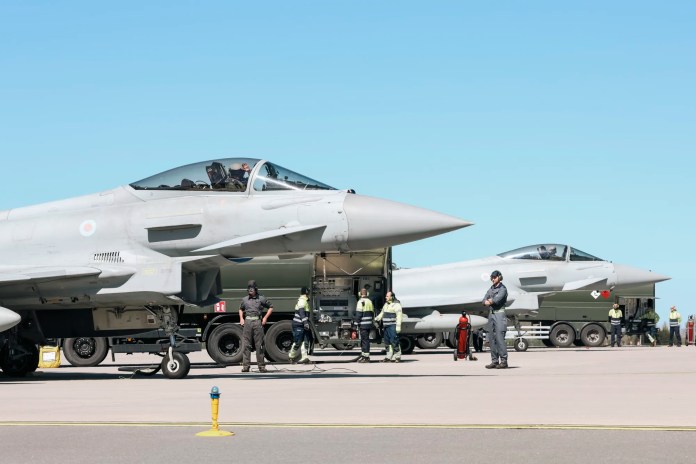As part of its ongoing efforts to strengthen the capabilities of its Air Force, Turkey has recently confirmed the support of Germany and the United Kingdom to finalize the purchase of 40 new Eurofighter Typhoon fighter jets, following delays in the negotiations due to various factors. This intention was expressed by Turkish President Recep Tayyip Erdogan during his return from a visit to Northern Cyprus, where he also emphasized his expectation to conclude the deal “as soon as possible.”

Ankara’s interest in the Eurofighter Typhoon stems from the need to reinforce the current fleet of combat aircraft operated by the Turkish Air Force, which is primarily composed of U.S.-made F-16s. This comes as Turkey continues the development of its fifth-generation KAAN fighter jet, which is currently undergoing flight testing and evaluations — and for which a deal with Indonesia for the sale of 48 units is reportedly being prepared.
In this context, acquiring aircraft from the Eurofighter consortium would provide Turkey with a temporary ‘stopgap’ solution to fill the gap between its existing fleet of Fighting Falcons — which, after back-and-forth discussions with Washington, will not be upgraded to the Block 70 standard — and the future KAAN, which has not yet entered operational service.


However, the negotiations over the Eurofighters have not been free from ups and downs, especially with Germany, a country that has historically been reluctant to authorize arms exports to Turkey due to political differences and allegations of human rights violations, among other concerns. Nevertheless, in early July of this year, reports emerged indicating that Berlin was prepared to lift its veto and authorize the sale of the 40 fighter jets — a decision that would unlock the process within the consortium and pave the way to finalize the agreement.
It is worth recalling that the European consortium responsible for the development and manufacturing of the Eurofighter is composed of Germany, the United Kingdom, Italy, and Spain, through the companies Airbus, BAE Systems, and Leonardo. Approval from the member countries — particularly Germany — is key to moving forward with the export process.

On the other hand, progress on this potential sale is also of great importance for the United Kingdom, not only for political reasons but also for industrial ones. In the days following Germany’s green light, it was confirmed that the Eurofighter Typhoon production line at BAE Systems’ Warton plant in Lancashire would be shut down due to a lack of new orders from both the Royal Air Force and international clients, leading to the reassignment of hundreds of workers to other factories or RAF bases.
In this regard, finalizing the deal with Turkey could provide a crucial boost of activity for the UK’s Eurofighter industrial supply chain, while also positioning Ankara as a major strategic customer within the European defense ecosystem — at a time when several consortium countries are seeking ways to ensure the continuity of the program amid a shortage of new domestic orders.

Lastly, according to sources close to the negotiations, Turkey is nearing a preliminary agreement valued at approximately USD 5.6 billion, which could be announced soon, potentially using the upcoming IDEF international defense exhibition in Istanbul as a platform. Additionally, talks with the United Kingdom are reportedly well advanced, and the base agreement — which includes a testing and inspection schedule — is expected to be formalized before the end of the year.
Photos used for illustrative purposes only.

